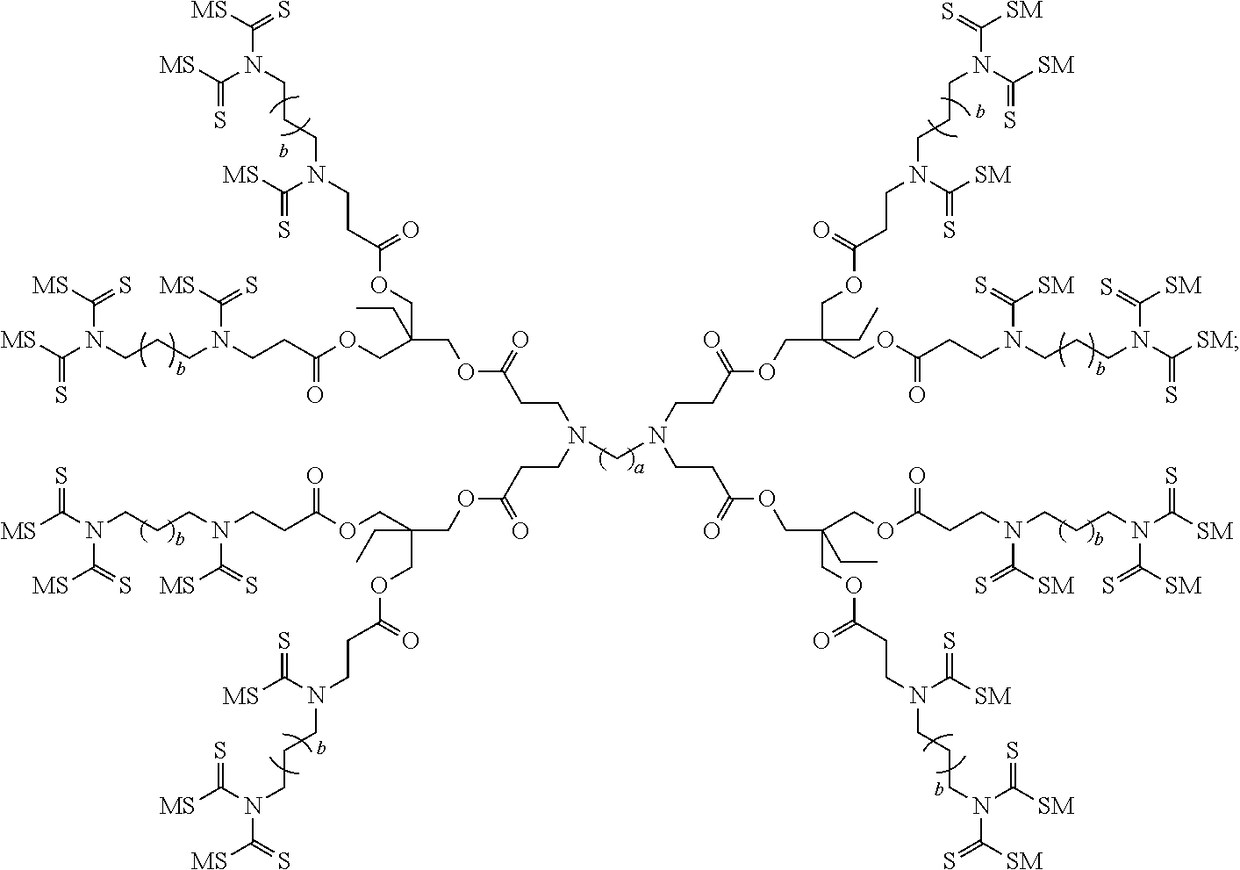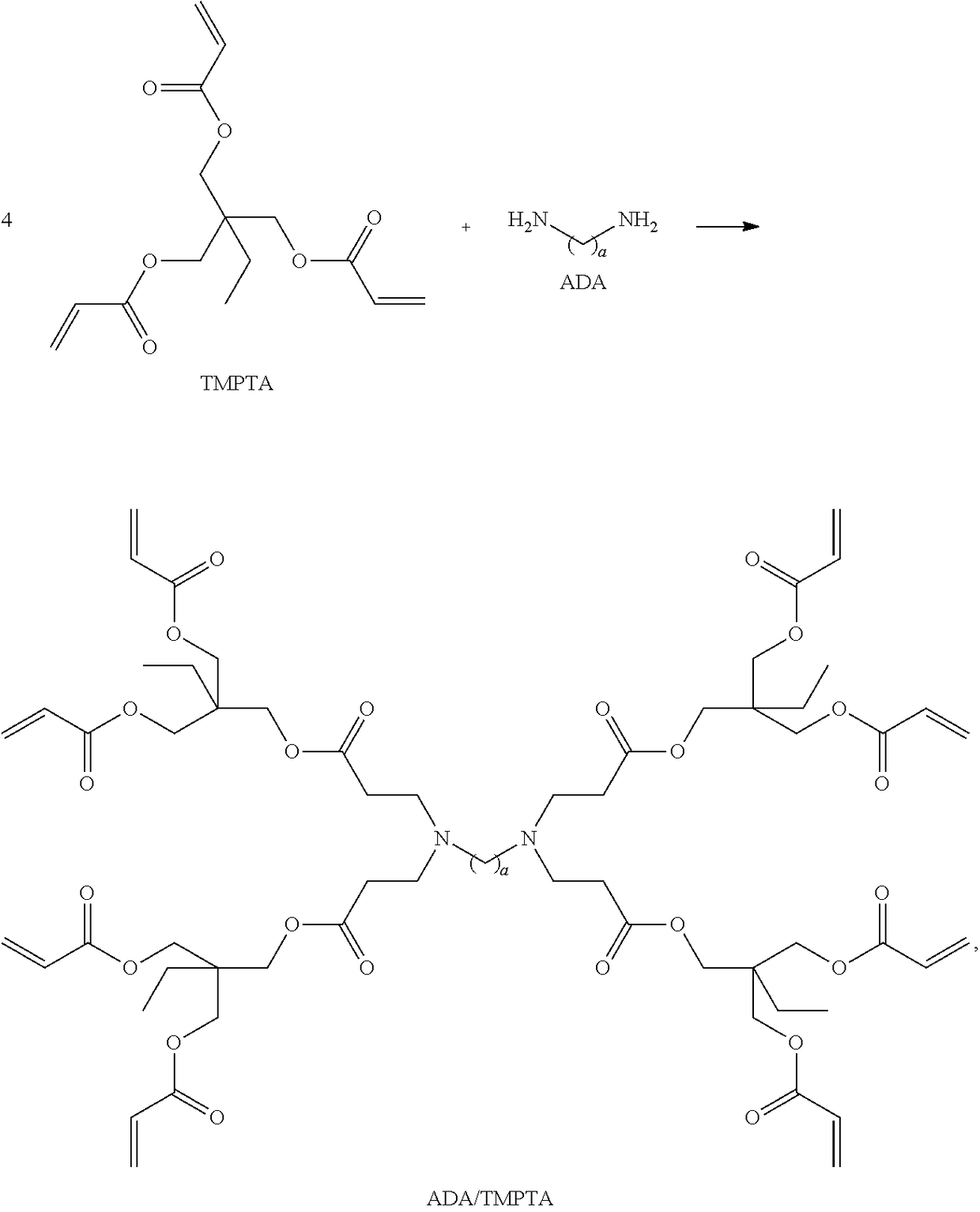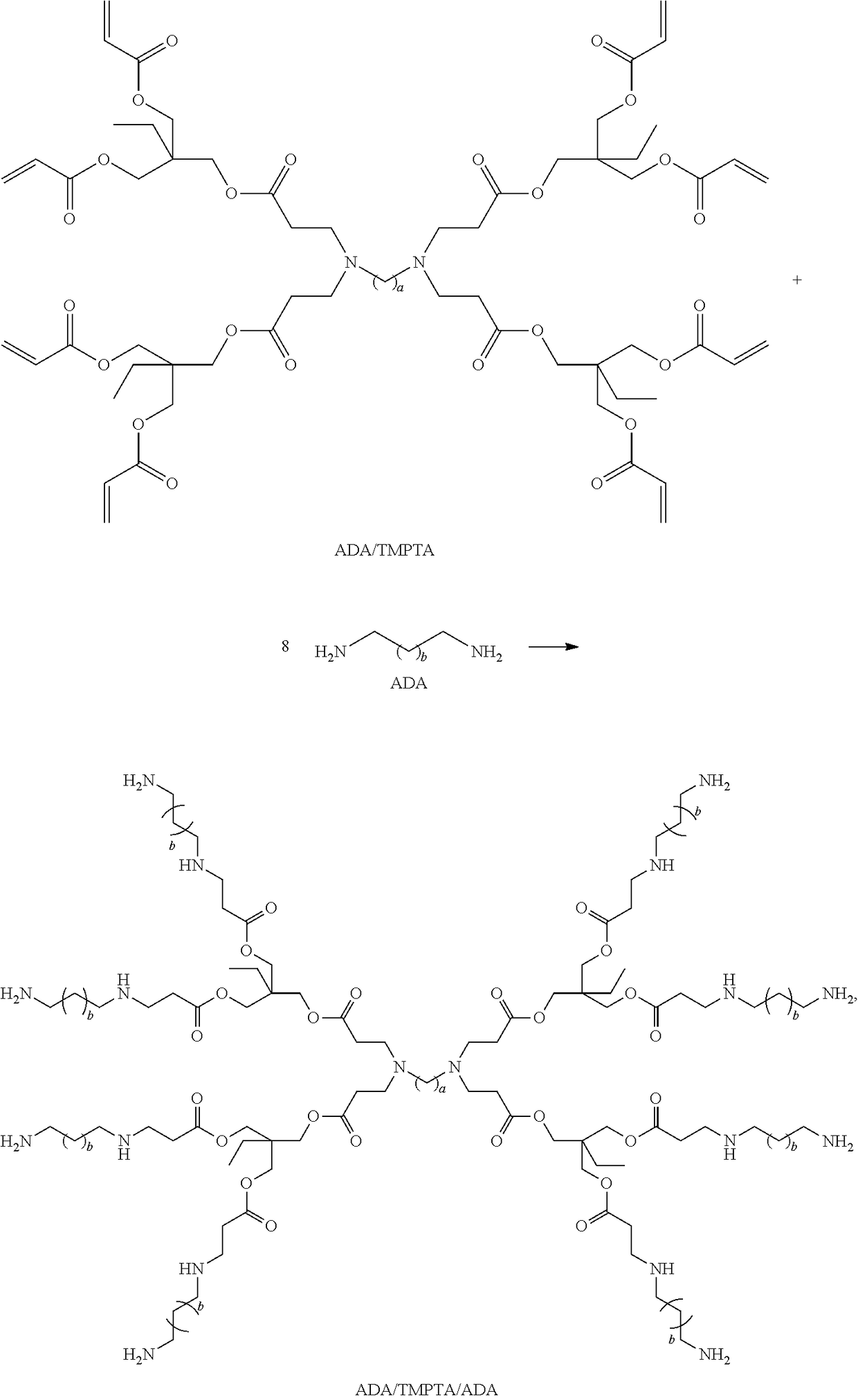Dithiocarbamate functionalized dendrimer with alkylenediamine core as soil heavy metal immobilization amendment and preparation method thereof
a technology of dithiocarbamate and immobilization amendment, which is applied in the field of environmental protection, can solve the problems of contaminated soil reclamation, reducing the production of 10 million tons of food, and affecting the quality of soil, so as to achieve good stabilization performance, overcome the large dosage, and improve the effect of soil quality
- Summary
- Abstract
- Description
- Claims
- Application Information
AI Technical Summary
Benefits of technology
Problems solved by technology
Method used
Image
Examples
example 1
Preparation of Dithiocarbamate Functionalized Dendrimer with Butanediamine Core (a=4, b=2)
[0061](1) Preparation of Double Bond-Terminated Lower Generation Dendrimer
[0062]266.40 g (50.00%, 0.45 mol) of a methanol solution of trimethylolpropane triacrylate (TMPTA for short) was added into a first round-bottom flask with a first stirrer, a first reflux condenser and a first thermometer. 8.80 g (50.00%, 0.05 mol) of a methanol solution of butanediamine (1,4-Butanediamine, BDA for short) was dropped into the first round-bottom flask to form a first mixture at a temperature of lower than 10° C., under a nitrogen protection and a stirring condition, wherein a dropping speed was controlled to keep the temperature lower than 10° C. when dropping. The temperature was increased to 25° C.; then, the first mixture reacted for 10 h. Thereafter, the temperature was decreased to 10° C., and 8.80 g (50.00%, 0.05 mol) of the methanol solution of BDA was added again into the first round-bottom flask t...
example 2
Preparation of Dithiocarbamate Functionalized Dendrimer with Hexanediamine Core (a=6, b=4)
[0069](1) Preparation of Double Bond-Terminated Lower Generation Dendrimer
[0070]266.40 g (50.00%, 0.45 mol) of a methanol solution of trimethylolpropane triacrylate (TMPTA for short) was added into a first round-bottom flask with a first stirrer, a first reflux condenser and a first thermometer. 11.60 g (50.00%, 0.05 mol) of a methanol solution of hexanediamine (1,6-Hexanediamine, HDA for short) was dropped into the first round-bottom flask to form a first mixture, at a temperature of lower than 10° C., under a nitrogen protection and a stirring condition, wherein a dropping speed was controlled to keep the temperature lower than 10° C. when dropping. The temperature was increased to 25° C. and the first mixture reacted for 10 h. Thereafter, the temperature was decreased to 10° C., and 11.60 g (50.00%, 0.05 mol) of the methanol solution of HDA was dropped into the first round-bottom flask to fo...
example 3
Application
[0077]Tested soil is contaminated by Cd and Pb, and basic physical and chemical properties of the tested soil are showed in Table 1. The dithiocarbamate functionalized dendrimers with the alkylenediamine core as the amendments, obtained by the examples 1 and 2, and the sodium sulfide and the thiourea of the comparisons 1 and 2 were added based on a mass percentage of the soil. Then water, with the same weight as the amendments, was added, and the soil was uniformly mixed. The uniformly mixed soil was dried naturally at a room temperature, so as to obtain immobilized and remedied soil.
[0078]
TABLE 1Basic physical and chemical properties of tested soilpHWater content (%)Plumbum (mg / Kg)Cadmium (mg / Kg)7.372.031623.38931.267
[0079]The soil was tested through an extraction method defined in Solid waste-Extraction procedure for leaching toxicity-Acetic acid buffer solution (HJ / T300-2007) to measure a heavy metal content in a leaching liquid. Experimental results are showed in Tabl...
PUM
| Property | Measurement | Unit |
|---|---|---|
| temperature | aaaaa | aaaaa |
| temperature | aaaaa | aaaaa |
| temperature | aaaaa | aaaaa |
Abstract
Description
Claims
Application Information
 Login to View More
Login to View More - R&D
- Intellectual Property
- Life Sciences
- Materials
- Tech Scout
- Unparalleled Data Quality
- Higher Quality Content
- 60% Fewer Hallucinations
Browse by: Latest US Patents, China's latest patents, Technical Efficacy Thesaurus, Application Domain, Technology Topic, Popular Technical Reports.
© 2025 PatSnap. All rights reserved.Legal|Privacy policy|Modern Slavery Act Transparency Statement|Sitemap|About US| Contact US: help@patsnap.com



